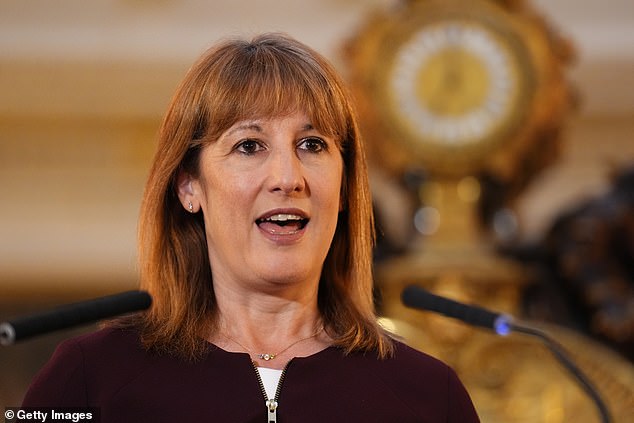Rachel Reeves suffered another body blow ahead of the Budget today with figures showing borrowing hit a five-year high last month.
Public sector spending was £18billion higher than income in August despite surging tax revenues. It was a peak for the month since 2020, when the country was scrambling to deal with Covid, and above the £12.8billion analysts had pencilled in.
Alarmingly for the Chancellor, borrowing for the year to date is running at £83.8billion, £16.2billion more than the equivalent period in 2024-25 – and £11.4billion more than the Treasury’s OBR watchdog forecast.
The bleak data come as pressure mounts on Ms Reeves over the looming Budget, with warnings that downgrades in productivity and growth are widening the black hole in the government books.
She is also facing demands for higher spending on areas such as defence, and rising interest costs on the UK’s debt mountain.

The bleak data come as pressure mounts on Ms Reeves over the looming Budget, with warnings that downgrades in productivity and growth are widening the black hole in the government books
ONS chief economist Grant Fitzner said: ‘Last month’s borrowing was the highest August total since the pandemic.
‘Although overall tax and National Insurance receipts were noticeably up on last year, these increases were outstripped by higher spending on public services, benefits and debt interest. Total borrowing for the financial year to date was also the highest since 2020.
‘As usual for this time of year, we have included some routine annual data updates.’
Shadow chancellor Mel Stride said: ‘Keir Starmer and Rachel Reeves are too weak and distracted to take the action needed to reduce the deficit.
‘The Chancellor has lost control of the public finances, and Labour’s weakness means much needed welfare reforms have been abandoned. No wonder our borrowing costs recently hit a 27-year high.
‘The Conservatives are the only party committed to fiscal responsibility and living within our means.’
The bumper borrowing emerged amid warnings Ms Reeves could be forced to inject billions more into public services if she fails to boost productivity.
The Institute for Fiscal Studies (IFS) said the Chancellor is banking on making ambitious efficiencies to improve the NHS and other services.
But it said that if Ms Reeves fails to meet her target for increasing productivity, she could be forced to significantly top up her spending plans – potentially by up to £18billion.
The IFS estimated that the Government’s spending plans imply a 2.9per cent increase in input productivity, equivalent to 1.0per cent per year.
However, the figure is more than four times faster than the estimated average annual growth rate between 1997 and 2019.
The IFS warned that if the Government only delivers half of its planned productivity improvements, then ‘achieving the same level of public sector performance as currently implied would require a £9 billion top-up to spending in 2028-29’.
But if funding productivity stays flat, it would double to an £18billion top-up, the think tank said.












